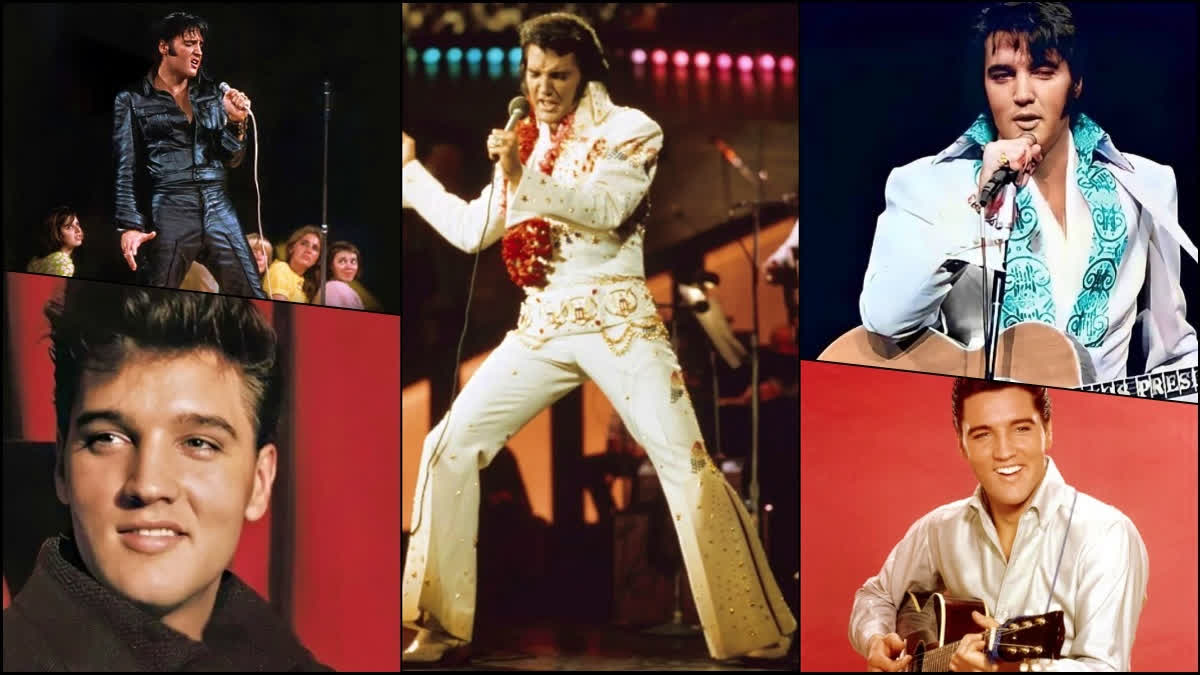There’s a moment in every music fan’s life when they encounter Elvis Presley. For some, it’s the swivelling hips on a grainy black-and-white TV broadcast, a performance so electrifying that entire living rooms reportedly went silent. For others, it’s that voice—velvety and raw, tender and defiant. But no matter how you find him, one thing becomes clear almost immediately: Elvis was the singer, the man who took rock ’n’ roll, added a truckload of swagger, and turned it into something that made you want to stand up.
To call Elvis the King of Rock ’n’ Roll is almost a disservice. Kings inherit their thrones, Elvis built his. He grew up dirt poor in Tupelo, Mississippi, a place where dreams were as scarce as jobs. His family moved to Memphis when he was 13, and that’s where the magic started brewing.
Memphis in the late 1940s was a melting pot of musical influences: blues, gospel, country, and Elvis soaked it all in like a sponge. By the time he walked into Sun Records in 1953, he was a living jukebox of American music, capable of blending genres in a way no one had ever done before.
And then came That Sound.
There’s a scene in music history that feels almost mythological: July 5, 1954. A young Elvis, along with guitarist Scotty Moore and bassist Bill Black, starts fooling around in Sun Studio. They break into an impromptu version of That’s All Right, a blues song by Arthur Crudup, but it doesn’t sound like blues anymore. It sounds like the future. Producer Sam Phillips hears it, and the rest, as they say, is history.
Elvis turned country into rockabilly, blues into swagger, gospel into a full-body experience. His voice was a paradox: it could growl and croon, soar and seduce, all in the same verse. Listen to Heartbreak Hotel, and you’ll hear loneliness distilled into sound. Play Jailhouse Rock, and you’ll feel like breaking rules you didn’t even know existed.
Of course, there’s the image. The pompadour, the sequins, the smirk that said, “I know something you don’t.” Elvis embodied something new and electric on stage. He was dangerous enough to make parents nervous but charismatic enough to make their kids swoon.
What really cements Elvis as the King is how he made rock ’n’ roll universal. Before Elvis, rock was bubbling under the surface (a vibrant but niche mix of rhythm and blues, country and gospel). After Elvis, it was a tidal wave. He didn’t invent rock ’n’ roll, but he was its greatest amplifier, its most magnetic spokesperson. Artists like Chuck Berry and Little Richard had laid the groundwork, but Elvis brought it to the mainstream, bridging the racial divide in music at a time when America desperately needed it.
His influence didn’t stop at the charts. Without Elvis, there might not have been The Beatles, or The Rolling Stones, or anyone else who ever dreamed of picking up a guitar and screaming into a microphone. John Lennon famously said, “Before Elvis, there was nothing.” And while that’s a bit hyperbolic, you get the sentiment.
Of course, the Elvis story isn’t all triumph. By the 1970s, the King had become a caricature of himself: bloated, bejeweled, and battling demons that no amount of applause could drown out. His death in 1977 was both shocking and inevitable.
But here’s the thing about Elvis: even in death, he remains alive. He’s in the DNA of rock ’n’ roll. A new generation of artists channel his spirit in this decade. Artists like Bruno Mars and The Weeknd bring a modern twist to the charisma and showmanship Elvis embodied. Their performances (complete with slick suits, magnetic stage presence, and infectious grooves) feel like a nod to Elvis’s Las Vegas heyday. Similarly, the swagger and soulful crooning of artists like Harry Styles reflect the King’s ability to blend genres and transcend trends.
Beyond live performances, Elvis’s music continues to echo in unexpected ways. His songs have been sampled and referenced in modern hits. Tracks like Eminem’s Houdini and JXL’s remix of A Little Less Conversation have taken Elvis’s iconic sound and reintroduced it to younger audiences. Even pop culture itself keeps him alive, with movies like Elvis (2022) reminding the world of his unmatched legacy.
Elvis Presley wasn’t perfect. He didn’t have to be. What made him the King of Rock ’n’ Roll wasn’t his ability to stay on a pedestal—it was his ability to connect, to ignite, to make you feel something primal and pure. On his birth anniversary, we remember not just the man he was, but the legacy he left behind. Long live the King.
Read more:



